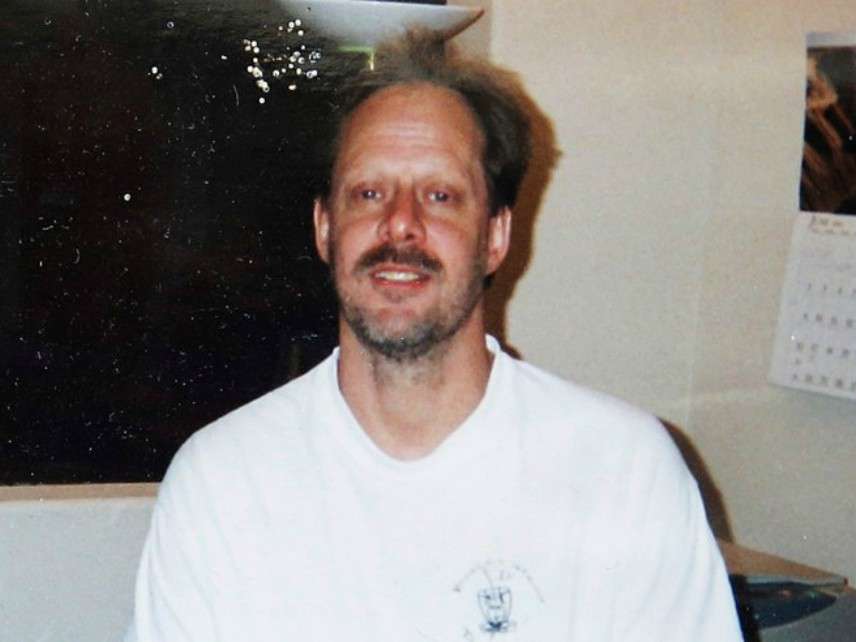The Futility of Looking for Mass Murder in Stephen Paddock's Brain
The reasons for the Las Vegas massacre cannot be found in the perpetrator's tissue or in the DSM.

Next week Stanford neuropathologist Hannes Vogel expects to receive Las Vegas shooter Stephen Paddock's brain, which he plans to examine for an explanation of the man's horrifying crime. He is not optimistic.
"I think everybody is pretty doubtful that we're going to come up with something," Vogel told The New York Times. "The possibilities, neuropathologically, for explaining this kind of behavior are very few."
The Times notes that "there has been speculation focused on a disease process known as fronto-temporal lobar degeneration," which "affects areas of the brain that are vital for 'executive functions' like decision-making and social interaction." The disease "often strikes in a patient's 50s or 60s and can cause marked personality changes." People suffering from that condition, Vogel says, "are notoriously prone to errors in judgment and unrestrained behavior." But he points out that that Paddock's behavior does not seem consistent with fronto-temporal lobar degeneration, since "people will say in the same breath that this guy was so meticulous in planning" his attack.
According to the Times, Vogel will "look for signs of all the standard detectable neurological entities, including strokes, blood vessel diseases, tumors, certain types of epilepsy, multiple sclerosis, degenerative disorders, physical trauma and infections." Not that any of those conditions would explain Paddock's actions, inasmuch as millions of other people suffer from them without committing mass murder.
Although pathologists have dug into the brains of murderers such as Richard Speck and Charles Whitman, so far they have not managed to locate anyone's motives. Whitman reportedly had a tumor, but because of sloppy tissue handling a panel of experts "could not establish whether a block of tissue containing the mass…had come from Mr. Whitman's brain or from someone else's." The Times concedes that "even if the tumor was Mr. Whitman's, the role it might have played in the violent events was never determined."
Vogel observes that the supposed tumor "was a very handy excuse for the fact that he went out and shot people." He adds, "I don't think I ever heard in my own experience of someone on a homicidal rampage because they had a brain tumor."
Alas, the Times says, "most psychiatric illnesses…are not currently discernible by this type of examination." Most? I will go out on a limb and suggest that no psychiatric illness is discernible by this type of examination. If it were, as the late psychiatric gadfly Thomas Szasz often observed, it would be considered a neurological disease (or injury) rather than a mental illness. Without bothering to look at Paddock's brain, we are free to speculate that he suffered from a mental illness that caused him to fire upon a crowd of country music fans from the 32nd floor of the Mandalay Bay Resort and Casino, just as people have made similar claims about previous mass shooters.
But a psychiatric diagnosis is not an explanation. No matter what label you pick for Paddock from the Diagnostic and Statistical Manual of Mental Disorders, it will remain true that virtually no one who shares that diagnosis does anything like what he did. Hence trying to identify future mass murderers based on that diagnosis, whether with the intent of disarming them, forcibly treating them, or preventively detaining them, would be worse than futile.
Although we may never understand Paddock's motives, he had reasons for doing what he did. That is the troubling reality people are trying to avoid when they ascribe his actions to a brain disease or a mental illness.


Show Comments (62)